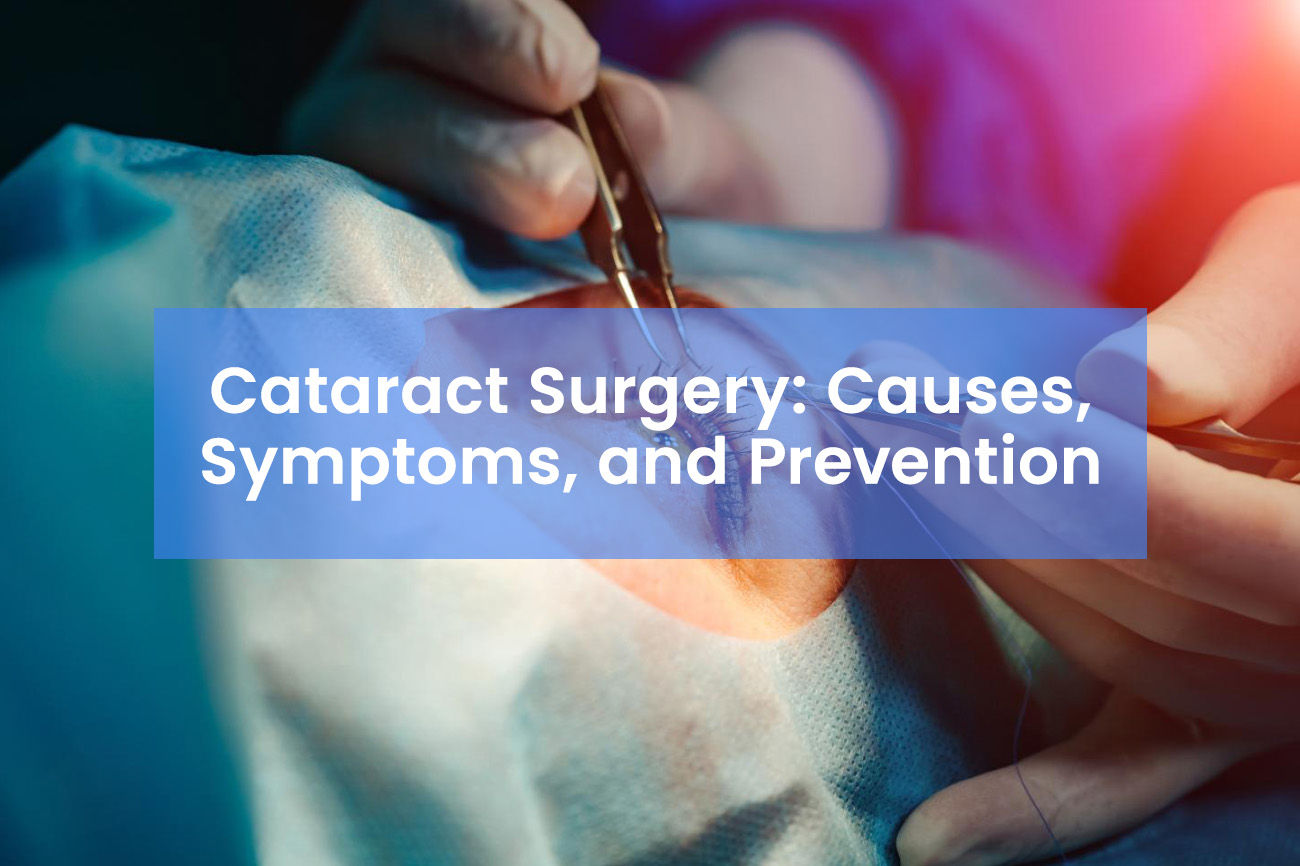
Comprehending Cataract Surgery: Causes, Symptoms & Prevention
Cataracts affect millions each year and remain a leading cause of blindness worldwide. They cloud the eye's usually clear lens. For those with cataracts, their vision resembles peering through a veil of mist or frost, a challenging visual obstacle.
People with cataracts may find reading or driving in low light challenging, disrupting their daily activities. Seeking treatment is vital. We aim to assist individuals seeking information on this condition, exploring its causes, symptoms, and cataract-removal surgery.
-
What Causes Cataracts?
Cataracts may arise from various factors, with aging being the predominant trigger. As we age, proteins within the eye lens tend to aggregate, leading to opacity. Additional factors that may exacerbate this condition encompass:
-
-
Genetic predisposition: A genetic predisposition to cataracts can increase your vulnerability to developing the condition.
-
Certain medical conditions: Diabetes may lead to the formation of cataracts.
-
Lifestyle choices: Smoking and heavy alcohol consumption have been associated with the development of cataracts.
-
Environmental factors: Extended exposure to UV rays without proper eye protection can result in the formation of cataracts.
-
A history of eye injury or surgery: It can expedite the development of cataracts.
-
-
Symptoms of Cataracts
Detecting cataract symptoms promptly is essential for timely treatment. Be vigilant for typical signs such as:
-
-
Blurred vision: The image resembles gazing through a foggy window.
-
Light sensitivity: Intense lighting may cause discomfort or give the impression of halos.
-
Color fading or yellowing: Colors lose their vibrancy, and contrast diminishes.
-
Difficulty with night vision: Navigating through low-light conditions can present a challenge.
-
Regular prescription changes: Eyeglasses or contact lenses may require more regular updates.
-
-
When to Consider Cataract Surgery?
Cataract surgery is usually recommended when the condition notably impairs vision, affecting daily activities like reading or driving. This treatment is widely recognized as one of the most common and effective worldwide procedures.
The surgical procedure involves removing the cataract-affected lens and replacing it with a clear artificial lens called an intraocular lens (IOL). It is usually conducted as outpatient surgery and requires minimal sedation.
The procedure touts impressive success rates and significantly improves patients' vision. Cataract surgery provides benefits, including sharp visual clarity, improved quality of life, independence, and safety.
-
Preparing for Cataract Surgery
Before surgery, a thorough series of tests will be conducted to identify the most suitable lens implant (IOL) for your requirements. Your ophthalmologist will detail the process, potential risks, and crucial post-operative guidelines to ensure you are fully informed.
-
Recovery from Cataract Surgery
Adhere closely to your eye surgeon's guidance for a successful recovery. This includes using prescribed eye drops to prevent infection and inflammation, wearing protective eyewear, and avoiding strenuous activities that could impede healing.
-
Cataract Prevention
While there is no guaranteed way to prevent cataracts, you can lower your risk by implementing specific strategies, such as:
-
-
Wear sunglasses: It is essential to shield your eyes from damaging UV rays.
-
Maintain a balanced diet: Fruits and vegetables support excellent eye health due to their essential nutrients and antioxidants.
-
Addressing other health issues: Successfully handling conditions like diabetes can yield positive results.
-
Avoid smoking: It reduces the likelihood of developing cataracts and mitigates various other health issues.
-
Understanding cataract surgery is crucial for individuals managing this condition. Identifying causes, spotting symptoms early, and exploring surgical options are proactive measures for sustaining clear vision and overall health. Although eye surgery may seem daunting, advancements in cataract treatment enhance patient experience and outcomes.
Regular eye exams are vital for early cataract detection. Should you observe any alterations in your vision, promptly seek advice from your eye care specialist. Through diligent care and timely intervention, cataract impacts can be lessened, giving you a clearer view of the world.
